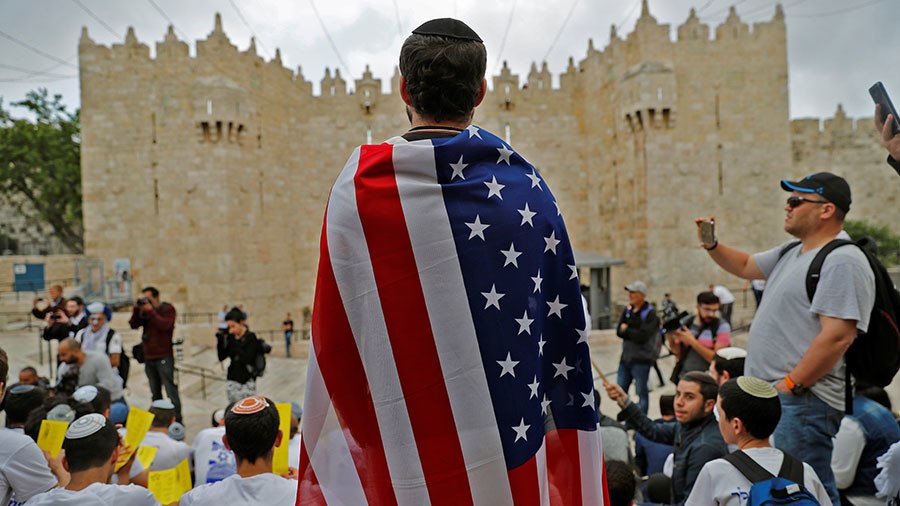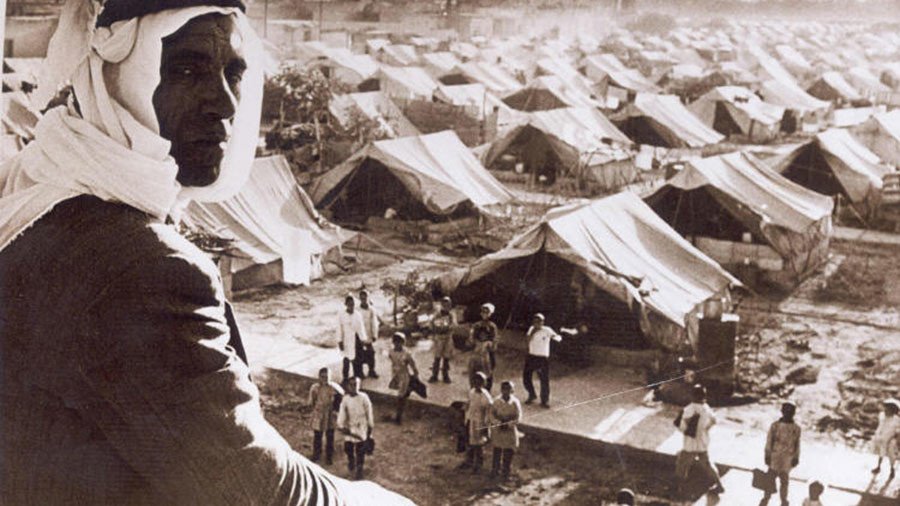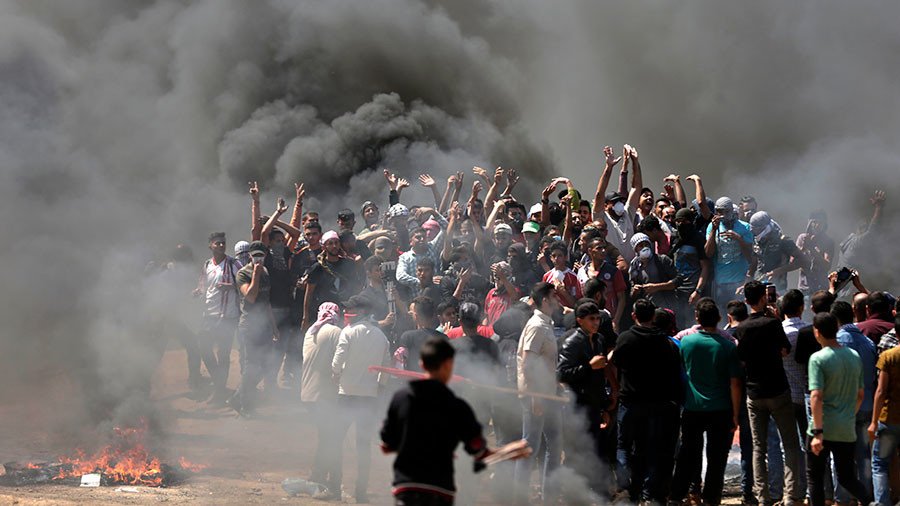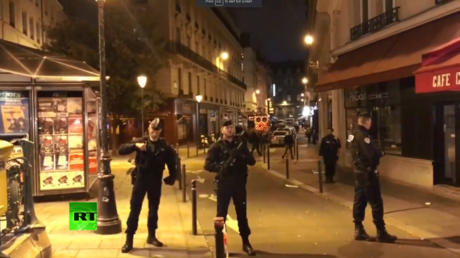US Embassy in Jerusalem to open as Israeli forces crack down on protesters in Gaza

The US Embassy will open in Jerusalem at 4pm local time, symbolizing US support for Israel as it cracks down on Palestinian protesters. The Great Return March is approaching its end date – the 70th anniversary of the Nakba.
More than 1,000 Israeli police officers will be working near the event, which will be attended by a US delegation represented by presidential advisers Ivanka Trump and her husband Jared Kushner (the man tasked to fix the Middle East), and Secretary of the Treasury Steve Mnuchin. Around 800 people are expected to attend the event, including a congressional delegation and a presidential delegation led by Deputy Secretary of State John Sullivan.
Video: U.S. Presidential Delegation for Jerusalem Embassy dedication ceremony arrives at Ben Gurion AIrport, May 13, 2018. pic.twitter.com/4RiFoveTtJ
— USEmbassyJerusalem (@usembassyjlm) May 13, 2018
“We look forward to celebrating Israel’s 70th anniversary and the bright future ahead. We will pray for the boundless potential of the future of the US-Israel alliance, and we will pray for peace,” Ivanka wrote on Instagram ahead of the opening as Palestinians gather for protests, which are expected to be met with Israeli gunfire.
READ MORE: Clashes erupt along Gaza-Israel border ahead of US Embassy inauguration (PHOTOS)
The inauguration comes severals months after President Donald Trump called Jerusalem the capital of Israel and stated that the US will move its embassy from Tel Aviv. The US State Department later announced the embassy move would “coincide with Israel’s 70th anniversary.”
The decision was met with international outrage and prompted violent protests. Israel has called Jerusalem its capital since 1950. It annexed East Jerusalem from the rest of the West Bank in the Six Day War of 1967. The international community does not formally recognize Jerusalem as the capital of Israel. Palestinians want East Jerusalem as their capital in the event of a two-state solution, which is supported worldwide as a peaceful resolution of the conflict.
Nakba
The date of the embassy opening delivers an additional sting to Palestinians, as it comes a day before of the 70th anniversary of the Nakba. Translated as ‘the catastrophe,’ it describes the forced displacement of over 700,000 Palestinians from their lands, along with the destruction of hundreds of villages and the period of violence before the establishment of the State of Israel was declared on May 14, 1948.
Memories of the Nakba are “handed down to families from generation to generation,” Conor McCarthy, co-founder of Academics for Palestine and co-founder of the Irish Palestinian Solidarity Campaign, told RT.

Palestinians mark the Nakba on May 15, the first day of the newly-established State of Israel, which would turn their temporary displacement to one far more permanent.
“Historically, one of the reasons that the Palestinian issue hasn’t melted away or vanished is that the Palestinian refugee population has not assimilated somewhere else; it’s left as a refugee population,” McCarthy said.
Today, 80 percent of Gaza’s 1.8 million population are the children and grandchildren of refugees who left their homes with the erroneous belief that their fleeing was a temporary escape to save their families. “Gaza is one of the most densely populated places on earth and is also subject to siege, so things like that help to enforce a recurring kind of memory,” McCarthy said. “They just aren’t forgotten.”
Great Return March
The six-week Great Return March taking place on the Gaza-Israel border is an expression of the Palestinians’ longing to return to the homeland they left behind all those years ago. It was in part sparked by the frustration over Trump’s embassy announcement, and its conclusion coincides with both Nakba and the embassy move. The protest, which was met by Israel with violence as dozens were killed by sniper fire and over 1,700 wounded (according to Gaza health officials) is expected to gather tens of thousands on Monday and be the largest yet.

Although refugees’ right of return is enshrined in UN Resolution 194, it is an issue Israel has been unwilling to yield on.
“On one hand the Israelis want to block the Palestinian right of return, on the other hand they have their own ethnically exclusive law that enables the Israeli citizenship of Jewish people from anywhere,” McCarthy said, in reference to the Israeli law which gives Jewish people the right to settle in the country.
“So you have this bizarre, paradoxical situation where a person whose family has lived in another country for generations goes to live in Israel relatively quickly, while a person who wants to live in Jerusalem and is living in a [refugee] camp in Amman can’t go back home.”
Seven decades on from the Nakba, the situation for Palestinians remains dire.“As we come to the 70th Nakba, the number of settlers [now living in Palestinian territory] is not that far off the number of what professional Israeli historians now estimate to be the number of Palestinians that were ethnically cleansed; there’s almost a kind of mirroring there,” McCarthy said.
The US Embassy move acts as a clear display of US support for Netanyahu’s government at the expense of peace negotiations, and will likely further embolden the Israeli prime minister. However, there is the potential that it could serve as a positive: “The very nakedness of the Trump administration in its bend-over-backwards, fevered support for Israel is very good for rest of the world to see,” McCarthy said.
Think your friends would be interested? Share this story!













